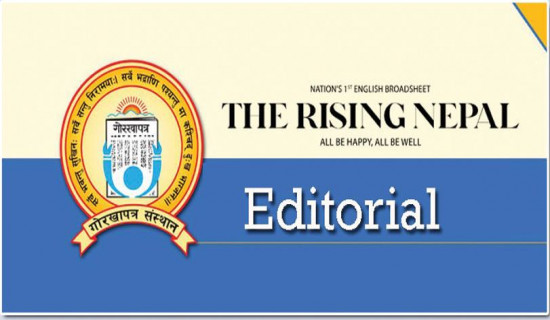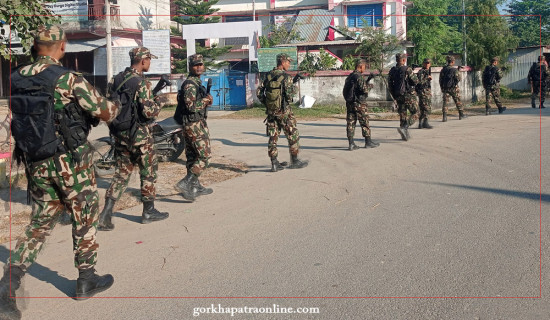- Wednesday, 4 February 2026
Economic Woes Call For Holistic Remedy
Nepali financial sector is now facing unpredictable threat, which is normally seen in the political field as well. Lack of order is affecting the micro-finance companies, with the deepening economic recession. The employees of banks and micro-finance companies are being physically attacked in different parts of country. Irate entrepreneurs are venting their ire against the banks and financial institutions (BFIs) over their high interest rates. Sometime back, one controversial businessman had launched a campaign against the BFIs, stating that there is no atmosphere to run business and pay back high interests to the banks. He had instigated the small and medium-scale entrepreneurs to join his campaign against the BFIs. Owing to the impact of this drive, BFIs’ employees have been assaulted. But the government immediately stepped up measures to control the anarchic activities.
The protest is seemingly mellowed down now but the banking sector is not still out of the woods as the apex body of business community - the Federation of Nepalese Chambers of Commerce and Industry (FNCCI) – is going to hold its elections on anti-BFIs plank. Banks and business communities need to foster sound ties for the economic welfare of the country. If they clash with each other, the entire business sector loses confidence and suffers a series of setbacks. External and internal shocks led to the current economic recession. Certain factors such as the pandemic, war and inflation are beyond the control of domestic mechanisms tasked to deal with the problems and activities of the macro and micro economic sectors. With the manufacturing sector shrinking, the industrialists are slowing to repay the principal and interest of their loans and soaring interest rates that reached 11 per cent. The banks used to charge as high as 8 per cent premium on base rate. Some commercial banks have revised the interest rate on loan arbitrarily.
There was a sequence of bad events - the 2015 earthquake, Indian blockade and COVID-19 pandemic - which brought the trade, commerce and industry to a grinding halt. The Russia-Ukraine War has led to an unprecedented price hike in food and fuel which contributed in further worsening of the economic situation. The Nepal Rastra Bank (NRB) has rolled out measures such as the concessional loans, discount on interest rates and refinancing to rehabilitate business. But the concessional loans were diverted to unproductive sectors – real estate and stock market. The share market tumbled down and real estate plunged into recession owing to the government moratorium on the plotting of the land. On the other hand, the private sector lending largely went to import financing that only caused liquidity crisis.
The import-based economy failed to gather momentum after the ban on the imports of luxury goods such as vehicles and liquor and the implementation of a provision to maintain 50 per cent to 100 per cent cash margins on imports. Microfinance institutions basically aim to lend the deprived sector but they got involved in fierce competition to earn profit, landing themselves in trouble. They should focus on social financing and the trend to finance them through commercial banks need to be checked. Similarly, the government and the central bank should incentivise the small and medium-size enterprises considered one of the crucial wheels of the economy. The NRB has asked the BFIs to reduce the spread rate to 4.2 per cent from the existing 4.4 per cent by mid-April. The readjustment of interest rates can help the woes of business community, to some extent.
















